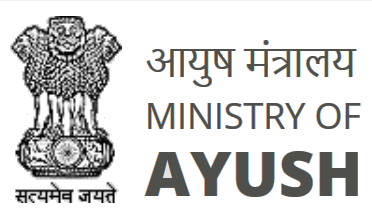Ministry of AYUSH
JIMS Homoeopathic Medical College Affiliations

The Ministry of AYUSH was formed on 9th November’ 2014. Earlier it was known as the Department of Indian System of Medicine and Homoeopathy (ISM&H) which was created in March 1995 and renamed as Department of Ayurveda, Yoga and Naturopathy, Unani, Siddha and Homoeopathy (AYUSH) in November 2003, with a view to provide focused attention for the development of Education and Research in Ayurveda, Yoga and Naturopathy, Unani, Siddha and Homoeopathy.
Objectives
Policy support from government
The Government has reiterated that Ayurveda, Homoeopathy, Siddha, Unani, Yoga and Naturopathy offer a wide range of preventive, promotive and curative treatments that are both cost effective and efficacious and there is need for ending the long neglect of these systems in our health care strategy. Budgetary support has been augmented and fiscal incentives and concessions that are available to modern pharmaceutical industry have been assured to ISM sector. The resurgence of interest in Ayurveda and other Indian Systems of Medicine in India and abroad and the opportunities created by such interest have been well perceived in the Government.
The Central Council for Health and Family Welfare in 1999 recommended, inter-alia, that at least one physician from the Indian Systems of Medicine & Homoeopathy (ISM & H) should be available in every primary health care centre and that vacancies caused by non-availability of allopathic personnel should be filled by ISM & H physicians. The Council also resolved that specialist ISM & H treatment centres should be introduced in rural hospitals and a wing should be created in existing state and district level government hospitals to extend the benefits of these systems to the public. It also resolved that expenses on treatment taken in ISM hospitals should be recognized for reimbursement for Central Government employees. In 2001, itfurther reiterated that the States must revisit the subject and identify specificareas where ISM practitioners can be entrusted with public health functions within the ambit of state legislations.
Medical education in Indian Systems of Medicine & Homoeopathy has been a cause of concern. After enactment of Indian Medicines Central Council Act, 1970 and Homoeopathy Central Council Act, 1973, five-and-ahalfyears Under-Graduate course and three years Post-Graduate coursewere introduced, provisions for adequate clinical exposure and internshipmade. The number of Indian Systems of Medicine & Homoeopathy colleges have increased phenomenally to 404. The Central Councils have implemented various educational regulations to ensure minimum standards of education. Depite this, there has been a mushroom growth of sub-standard colleges causing erosion to the standards of education and harm to medical training and practice. Liberal permission by the State Government, loopholes in the existing Acts and weakness in the enforcement of standards of education have contributed to this state of affairs.
To visit Ministry of AYUSH Click Here
